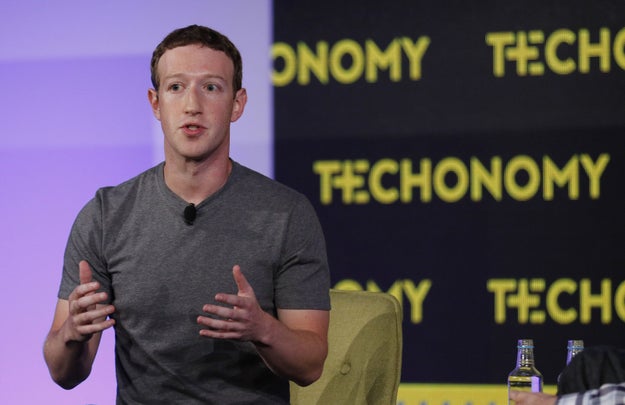
Paul Sakuma for Techonomy
Facebook CEO Mark Zuckerberg Thursday rejected charges that the social network's promotion of false pro-Trump news articles could have affected the outcome of the presidential election.
“I think the idea that fake news on Facebook — of which it&039;s a very small amount of the content — influenced the election in any way is a pretty crazy idea,” he said.
In the months leading up to November 8, fake news traveled far and wide on Facebook. Its algorithm-driven Trending feature repeatedly promoted untrue stories. Hyperpartisan political pages racked up hundreds of thousands of comments and likes on sensational and misleading stories about Hillary Clinton and Donald Trump. And many of those viral claims were made by Macedonian teens who profited handsomely by gaming the social network, as BuzzFeed News has found.
Zuckerberg was speaking onstage at Techonomy, a science, business, and technology conference held on Thursday, two days after Election Day. It was held at the Ritz-Carlton Hotel in Half Moon Bay, a picturesque seaside town between San Francisco and Silicon Valley, where many liberal-minded tech executives and employees were still coming to grips with the fact that America had voted to send Trump to the White House.
“Part of what I think is going on here is people are trying to understand the results of the election,” he said. “I think there is a certain profound lack of empathy in asserting that the only reason why someone could have voted the way they did is because they saw some fake news.”
Zuckerberg noted that hoaxes aren’t a brand-new phenomenon, either. “There have been hoaxes on the internet, there were hoaxes before,” he said. “We do our best to make it so that people can report that, and as I said before, we can show people the most meaningful content we can.”
He added, “Voters make decisions based on their lived experience. One part of this that I think is important is we really believe in people. You don’t generally go wrong when you trust people that understand what they care about and what’s important to them, and you build systems that reflect it.”
The CEO also argued that, compared to traditional media, Facebook&039;s newsfeed exposes people to a variety of opinions — and is not an echo chamber, as many have criticized the social network of being.
“The media diversity and diversity of information that you&039;re getting through a social system like Facebook is going to be inherently more diverse than what you would have gotten from watching one of three news stations and sticking with that and having that be your newspaper or your TV station 20 years ago,” he said.
Earlier in the day, a Facebook spokesperson had told BuzzFeed News: “While Facebook played a part in this election, it was just one of many ways people received their information – and was one of the many ways people connected with their leaders, engaged in the political process and shared their views.”
Quelle: <a href="Mark Zuckerberg Says Fake News On Facebook Didn’t Change The Election“>BuzzFeed
Published by